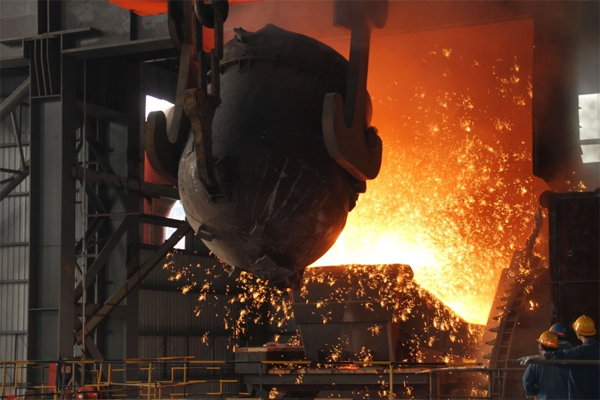
Calcium cored wire is a critical component in the steelmaking industry, known for its unique properties that contribute to various steel refining processes. This article delves into the key properties of calcium cored wire, shedding light on its effectiveness and versatility in achieving desired steel quality and performance.
Calcium cored wire possesses a high melting point, which is essential for its controlled release of calcium during steelmaking processes. The high melting point ensures that the wire remains intact until it reaches the desired temperature in the molten steel. This controlled release enables precise dosing of calcium, allowing for efficient desulfurization, deoxidation, and inclusion modification.
The reactivity of calcium cored wire is a crucial property that makes it highly effective in steelmaking applications. Calcium has a strong affinity for oxygen, sulfur, and other impurities present in the molten steel. When introduced into the melt, calcium reacts vigorously, forming compounds such as calcium sulfide (CaS) or calcium oxide (CaO). These reactions aid in the removal of impurities, resulting in cleaner and purer steel.
One of the notable properties of calcium cored wire is its high affinity for sulfur. Calcium readily combines with sulfur present in the molten steel, forming calcium sulfide (CaS). This reaction is crucial for desulfurization, as the formed calcium sulfide rises to the surface as slag, allowing for the removal of sulfur from the steel. The high affinity for sulfur makes calcium cored wire an efficient tool for achieving low sulfur content in the final steel product.
Calcium cored wire exhibits strong deoxidizing properties due to its ability to react with oxygen in the molten steel. The introduction of calcium into the melt results in the formation of calcium oxide (CaO) or calcium aluminate (CaAl2O4), which bind with oxygen and other impurities, forming slag. This deoxidation process prevents the formation of unwanted oxides, ensuring the integrity and quality of the steel.
Another significant property of calcium cored wire is its effectiveness in refining inclusions in the steel. Inclusions are non-metallic impurities that can impact the steel's properties. The addition of calcium alters the composition of these inclusions, improving their morphology and making them easier to remove during the refining process. This property enhances the cleanliness and purity of the steel, leading to improved mechanical properties and overall quality.

Calcium cored wire offers versatile alloying capabilities, allowing for the introduction of specific alloying elements into the steel. Calcium-based alloys, such as calcium-silicon (CaSi) or calcium-manganese (CaMn), can be incorporated to enhance specific properties of the steel. This property enables steel manufacturers to tailor the performance of the steel, optimizing strength, hardness, corrosion resistance, and other desired characteristics.
The key properties of calcium cored wire, including its high melting point, reactivity, affinity for sulfur, deoxidizing capabilities, inclusion refining properties, and versatile alloying capabilities, make it an indispensable tool in the steelmaking industry. These properties contribute to efficient desulfurization, deoxidation, inclusion modification, and the customization of steel properties. By harnessing the unique properties of calcium cored wire, steel manufacturers can achieve high-quality steel products with improved mechanical properties and enhanced performance in various applications.

Write a Message